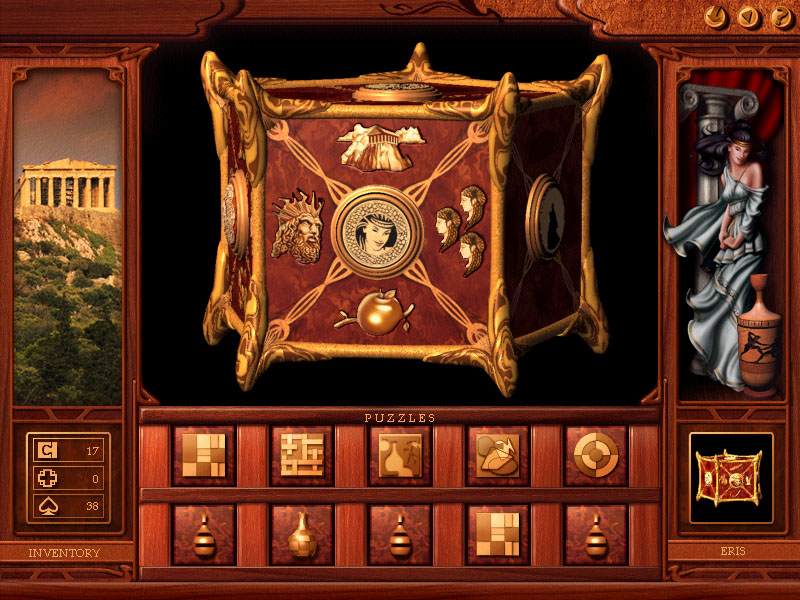
Pandora’s Box is an artifact in Greek mythology, taken from the myth of Pandora’s creation in Hesiod’s Works and Days. The “box” was actually a large jar given to Pandora, which contained all the evils of the world. When Pandora opened the jar, all its contents except for one item were released into the world. The one remaining item was Hope.
Pandora’s box is an artifact in Greek mythology, taken from the myth of Pandora’s creation in Hesiod’s Works and Days. The “box” was actually a large jar (pithos) given to Pandora (“all-gifted”, “all-giving”), which contained all the evils of the world.
The similarities of the story to the forbidden fruit in the story of Adam and Eve were identified by early Christians such as Tertullian, Origen and Gregory of Nazianzus. Today the phrase “to open Pandora’s box” means to perform an action that may seem small or innocent, but that turns out to have severely detrimental and far-reaching consequences.
Pandora’s box means a source of troubles. When we talk about opening Pandora’s box, we use it as a metaphor to mean that we may not know what we are getting ourselves into! Sometimes, that we do not always know how something we have started may end, that we do not know the consequences of our actions.
In classical Greek mythology, Pandora was the first woman on Earth. Zeus, the “Father of Gods and men” who rules the Olympians of Mount Olympus as a father rules the family according to the ancient Greek religion, ordered Hephaestus, the Greek god of blacksmiths, craftsmen, artisans, sculptors, metals, metallurgy, fire and volcanoes, to create her. So he did, using water and earth. The gods endowed her with many gifts: Athena clothed her, Aphrodite gave her beauty, Apollo gave her musical ability, and Hermes gave her speech.
When Prometheus, traditionally interpreted as “foresight”, literally “fore-thinker”, stole fire from heaven, Zeus took vengeance by presenting Pandora to Prometheus’ brother Epimetheus, which might mean “hindsight”, literally “afterthinker”). Pandora was given a wedding gift of a beautiful jar, with instructions not to open it under any circumstance.
Prometheus and Epimetheus was a pair of Titans who acted as representatives of mankind. They were the sons of Iapetus, a Titan, the son of Uranus, meaning “sky” or “heaven”, and Gaia, the personification of the Earth, and father (by an Oceanid named Clymene or Asia) of Atlas, the primordial Titan who held up the celestial spheres, Prometheus, Epimetheus, and Menoetius. While Prometheus is characterized as ingenious and clever, Epimetheus is depicted as foolish.
According to Plato’s use of the old myth in his Protagoras, the twin Titans were entrusted with distributing the traits among the newly created animals. Epimetheus was responsible for giving a positive trait to every animal, but when it was time to give man a positive trait, lacking foresight he found that there was nothing left.
Prometheus decided that mankind’s attributes would be the civilizing arts and fire, which he stole from Zeus. Prometheus later stood trial for his crime. In the context of Plato’s dialogue, “Epimetheus, the being in whom thought follows production, represents nature in the sense of materialism, according to which thought comes later than thoughtless bodies and their thoughtless motions.”
According to Hesiod, who related the tale twice, Epimetheus was the one who accepted the gift of Pandora from the gods. Their marriage may be inferred (and was by later authors), but it is not made explicit in either text. In later myths, the daughter of Epimetheus and Pandora was Pyrrha, who married Deucalion and was one of the two who survived the deluge.
Impelled by her curiosity (given to her by the gods), Pandora opened it and all evil contained therein escaped and spread over the earth. She hastened to close the container, but the whole contents had escaped; Apate and all the others, except for one thing that lay at the bottom – the Spirit of Hope, named Elpis, the personification and spirit of hope (hope was usually seen as an extension to suffering by the Greek, not as a god), perhaps a child of Nyx, the Greek goddess (or personification) of the night, and mother of Pheme, the goddess of fame, renown and rumor.
Pandora, deeply saddened by what she had done, feared she would have to face Zeus’ wrath, since she had failed her duty. However, Zeus did not punish Pandora because he knew this would happen.
The original Greek word was ‘pithos’, which is a large jar, sometimes as large as a small person (Diogenes of Sinope was said to have once slept in one). It was used for storage of wine, oil, grain or other provisions, or, ritually, as a container for a human body for burying.
In the case of Pandora, this jar may have been made of clay for use as storage as in the usual sense, or of bronze metal as an unbreakable prison. The mistranslation of pithos is usually attributed to the 16th century humanist Erasmus of Rotterdam who translated Hesiod’s tale of Pandora into Latin. Erasmus rendered pithos as the Greek pyxis, meaning “box”. The phrase “Pandora’s box” has endured ever since. This misconception was further reinforced by Dante Gabriel Rossetti’s painting Pandora.
It arose as a way of explaining why dreadful things happened, such as people getting sick and dying. As in many origin myths, man had lived in a world without worry – until this jar / box was opened, which contained ills for mankind. Many other myths also explain the ills of the world by saying they are caused by human disobedience of a god’s instructions.
Filed under: Uncategorized